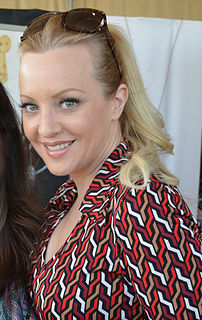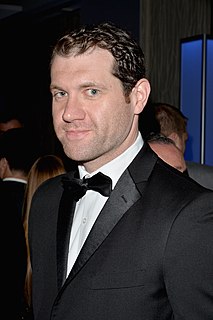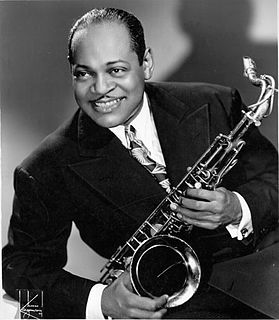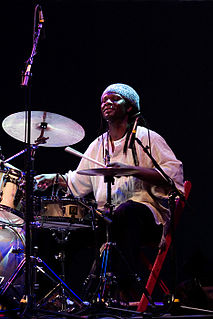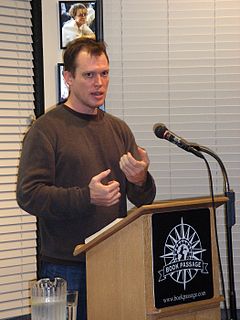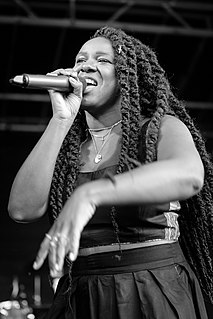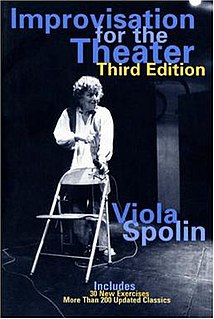Top 321 Improvise Quotes & Sayings - Page 6
Explore popular Improvise quotes.
Last updated on December 22, 2024.
Ralph Fiennes was a big hero of mine acting-wise growing up and while I was training. I just find him so watchable. He was playing this very intimidating character when we worked together and it certainly felt like he was in character off set as well! He was very cool. Before a scene, he'd be like, "Come on. Let's improvise. Let's just do stuff." But Jesus Christ. He's Ralph Fiennes!
When it comes to certain kind of rhythm things, particularly like shaker or tambourine tracks. I like the way I can really lock up with my own Hi Hat or Ride Cymbal beat. So a lot of times in recording I'll be asked -- or even volunteer -- to put a shaker or tambourine track on. Just to give it something extra. And it always works great. I hate it when I'm in the studio and I don't have any shakers or tambourines with me. I've been on a few dates when we didn't have anything and tried to improvise shakers out of some uncooked rice in soda cans. It sounded horrible.
Improv is more than just spitting out a bunch of funny stuff that's unrelated to the material. You have to stay in character, you have to react and respond as the character you're trying to play. You have to service the story, and I think improv training has helped with my listening, responding, and my audition technique. It's sounds so silly, but it's true. Because not only do you improvise during the audition, but once you get the part, they'll say, "Throw away everything. Just improv this scene. Do whatever you want." Someone could panic if they're not used to doing something like that.
By TV standards - I'm not comparing it to manual labor by any means - by TV comedy standards, it is the hardest job I will ever, ever have. There is nothing that could be harder. I mean, when you combine the amount of writing that has to be done - sharp writing - with the fact that you then take it to the street and improvise with both celebrities who have no idea what's going to happen and real people who are not actors or comedians who don't even know I'm about to talk to them... It's lightning in a bottle every time.
If they think they are doing something new, they ought to do what I do every day - spend at least two hours every day listening to Johann Sebastian Bach and, man, it's all there. If they want to improvise around a theme,which is the essence of jazz, they should learn from the master. He never wastes a note, and he knows where every note is going and when to bring it back. Some of these cats go way out and forget where they began or what they started to do. Bach will clear it up for them.
When I started, the scripts weren't as good, and you'd have to have a huge burst of energy to go, "Sheesh, how am I going to? This stuff's no good." So you'd have to improvise something or create something or try to work with the ware and try to figure out, how do you make this visually and orally acceptable, entertaining? Nowadays, the scripts are just so much better, that you don't have to feel that way. You feel like the script's coming to you, you can just relax. You don't have to drive the boat.
I think it’s very important to live in the present. One of the great things that improvising teaches you is the magic of the moment that you’re in … because when you improvise you’re in right now. You’re not in yesterday or tomorrow—you’re right in the moment. Being in that moment really gives you a perspective of life that you never get at any other time as far as learning about your ego… You have to see your unimportance before you can see your importance and your significance to the world.
When I started doing improvise music in Europe, in the beginning I thought the way that Europeans were interpreting the reconstruction of deconstruction of this thing that we call jazz - of course it's different than what Americans do, because Europeans have a different history, a different sensibility and so forth - the nature of the creative process itself it's the same; but what comes from that creative process is different, because you have a different history, you have a different society, different language.
I'm not a real musician. If you give me a bass guitar and you ask me to improvise something, or even be with some musicians and follow them, I wouldn't be able to do it. And I want to change that. I want to be able to be in a group and take my guitar and play with them, without someone showing me, "Okay, you're going to do this and that," because music has always been a big part of my life.
We played around and improvised a ton [in The Hangover], and I think it's hard to say at this point what's what. Gosh, I wouldn't even know how to take a stab at it. The script was so good that we really didn't need to improvise very much, but I think we just found a lot of moments on the set. It's really cool when you get onto the set of a movie and you start shooting the scenes and you start to actually incorporate the environment.
Travel compels you to discover your spiritual side by elimination: Without all the rituals, routines and possessions that give your life meaning at home, you're forced to look for meaning within yourself Indeed, if travel is a process that helps you 'find yourself', it's because it leaves you with nothing to hide behind - it yanks you out from the realm of rehearsed responses and dull comforts, and forces you into the present. Here, in the fleeting moment, you are left to improvise, to come to terms with your raw, true self.
Performing is really close to being in studio but performing takes over because being in the studio is two things; the first thing is that it is really beautiful to improvise and jam, but afterwards it becomes hard because it's very rare that a song will come together quickly. Most of the time it's back and forth and trial and error. You start questioning whether the song is good or not. So that can be quite tough.
Music and writing do fold together in the sense that you have to have a certain level of skill in order to execute your ideas and you need a medium. The idea of improvisation is one that many writers fall into, and I improvise a great deal when I'm writing, but there's a structural framework that I'm working around, and that takes more time than the actual writing. Once the characters get to yapping and talking, they'll move from one room to the next, and I just have to make sure that the house is built. That's really hard, that's the kind of thing that sits with you all day long.
At Carnegie Hall the Preservation Hall Jazz Band showed how easily it could hop from era to era. It could work like a rhythm-and-blues horn section or a tightly arranged little big band if need be, but it could also switch back into the polyphonic glories of vintage New Orleans jazz, in which nearly every instrument seems to improvise around the tune at the same time.
A puppet that starts to improvise badly is almost funnier than the puppet that's improvising well. So the show gets better when the improvising is really good, but also the show can also sometimes get better when the improvising sort of goes a little wrong and that's sort of a blessing to improvising with puppets.
Stargirl began to improvise. She flung her arms to a make-believe crowd like a celebrity on parade. She waggled her fingers at the stars. She churned her fists like an egg-beater. Every action echoed down the line behind her. The three hops of the bunny became three struts of a vaudeville vamp. Then a penguin waddle. Then tippy-toed priss. Every new move brought new laughter from the line.
Throughout the entire history of philosophy, philosophers have sought to discover what man is - or what human nature is. But Sartre believed that man has no such eternal nature to fall back on. It is therefore useless to search for the meaning of life in general. We are condemned to improvise. We are like actors dragged onto the stage without having learned our lines, with no script and no prompter to whisper stage directions to us. We must decide for ourselves how to live.
Sometimes, when I have to learn the lines in German and French, it's that much more difficult because it doesn't just sink in automatically, organically. I have to memorize it. It's a tricky thing, as well, as when you improvise, sometimes you want to say something but you don't know how to put it. It's more difficult than in your mother tongue. It's a challenge but, at the age of fifteen, I put myself up for it and I was aware that it would be an obstacle and many times.
Everyone can act. Everyone can improvise. Anyone who wishes to can play in the theater and learn to become 'stage-worthy.' We learn through experience and experiencing, and no one teaches anyone anything. This is as true for the infant moving from kicking and crawling to walking as it is for the scientist with his equations. If the environment permits it, anyone can learn whatever he chooses to learn; and if the individual permits it, the environment will teach him everything it has to teach. 'Talent' or 'lack of talent' have little to do with it.
I'm often surprised by classical music and musicians. I've met a large number of them because my wife works for the Boston Symphony, and I'm in that world a lot now. I'm surprised at how difficult it is for people who are classically trained to read music or to memorize music, how difficult it is for them to improvise, to just go off and play. It's sort of, it's like terra incognita. They just, (makes noise) they don't get it.
Many musicians are fabulously skilled at playing the black dots on the printed page, but mystified by how the dots got there in the first place and apprehensive of playing without dots. Music theory does not help here; it teaches rules of the grammar, but not what to say. When people ask me how to improvise, only a little of what I can say is about music. The real story is about spontaneous expression, and it is therefore a spiritual and a psychological story rather than a story about the technique of one art form or another.


